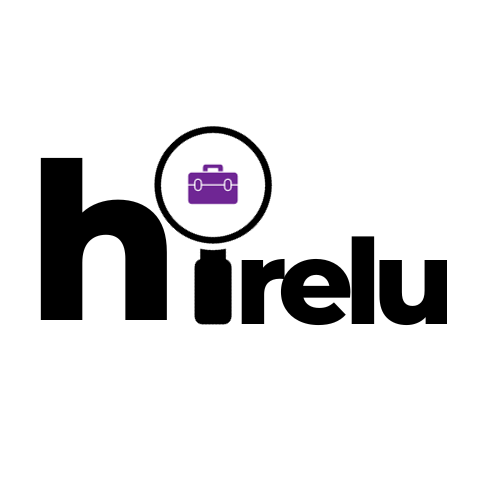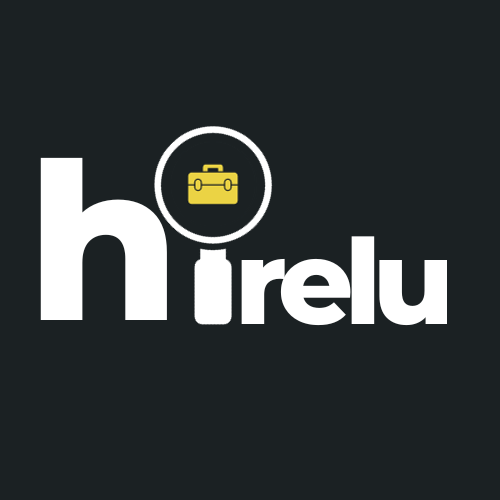A well-written resume is a crucial tool in the job search process. It serves as a marketing document that showcases your skills, qualifications, and experience to potential employers. A strong resume can make a positive impression and increase your chances of landing an interview, while a poorly written one can hinder your job prospects.
When employers receive a large number of applications for a single position, they often rely on resumes to quickly screen candidates and determine who to invite for an interview. A well-written resume can grab the attention of hiring managers and make them want to learn more about you. It should effectively communicate your relevant skills and experience, highlight your achievements, and demonstrate why you are the best fit for the job.
On the other hand, a poorly written resume can have a negative impact on your job prospects. It may fail to capture the attention of hiring managers or convey your qualifications effectively. A resume filled with spelling and grammatical errors, inconsistent formatting, or irrelevant information can give the impression that you lack attention to detail or are not serious about the position. In a competitive job market, it is essential to have a well-crafted resume that stands out from the crowd.
Key Takeaways
- A well-written resume is crucial for job seekers to stand out in a competitive job market.
- Investing in a professional resume writing service can be worth it for those who struggle with writing or want a polished final product.
- Following a step-by-step guide can help job seekers write a strong resume, including formatting tips for maximum impact.
- Customizing your resume to the job you’re applying for can increase your chances of getting an interview.
- Highlighting your skills and achievements is important to showcase your value to potential employers.
Resume Writing Service: Is It Worth the Investment?
While some job seekers prefer to write their own resumes, others turn to professional resume writing services for assistance. These services offer expertise in crafting resumes that are tailored to specific industries and job roles. They can help you highlight your strengths, optimize your resume for applicant tracking systems (ATS), and ensure that it is visually appealing and error-free.
One of the main benefits of using a professional resume writing service is that it saves you time and effort. Writing a resume from scratch can be a daunting task, especially if you are not familiar with current industry trends or best practices. A professional writer can take care of this process for you, allowing you to focus on other aspects of your job search.
Another advantage of using a resume writing service is that it can increase your chances of getting noticed by employers. Professional writers have a deep understanding of what employers are looking for and can help you highlight your most relevant skills and experience. They can also provide valuable insights and advice on how to tailor your resume to specific job postings.
However, it is important to consider the potential drawbacks of using a resume writing service. These services can be expensive, especially if you opt for a customized package that includes additional services such as cover letter writing or LinkedIn profile optimization. Additionally, not all resume writing services are created equal. It is important to do your research and choose a reputable provider with a track record of success.
When deciding whether to use a resume writing service, consider factors such as your budget, time constraints, and level of confidence in your own writing abilities. If you have the resources and feel that professional assistance would benefit you, it may be worth the investment. However, if you are confident in your ability to write a strong resume and have the time to dedicate to the process, you may choose to go it alone.
How to Write a Resume: A Step-by-Step Guide
Writing a resume can seem like a daunting task, but breaking it down into manageable steps can make the process more approachable. Here is a step-by-step guide to help you craft an effective resume:
1. Understand the purpose of each section of a resume: A well-structured resume typically includes sections such as a summary statement, work experience, education, skills, and additional information. Each section serves a specific purpose and should be tailored to highlight your qualifications for the job.
2. Craft a compelling summary statement: The summary statement is the first section of your resume and should grab the attention of hiring managers. It should provide a brief overview of your skills, experience, and qualifications, and highlight what makes you a strong candidate for the position.
3. Highlight relevant experience and skills: The work experience section is where you showcase your relevant professional experience. Focus on highlighting accomplishments and responsibilities that are directly related to the job you are applying for. In the skills section, list any relevant technical or soft skills that are required for the position.
4. Use action verbs and quantifiable achievements: When describing your experience and achievements, use action verbs to make your statements more impactful. Additionally, whenever possible, quantify your achievements with specific numbers or percentages to demonstrate the impact you made in previous roles.
5. Customize your resume for each job application: Tailor your resume to the specific job and employer by researching the company and job requirements. Use keywords from the job description in your resume to show that you have the skills and qualifications they are looking for.
6. Proofread and edit your resume: Before submitting your resume, carefully proofread it for spelling and grammatical errors. Pay attention to formatting consistency and ensure that all information is accurate and up to date. Consider asking a trusted friend or family member to review your resume as well.
Formatting Your Resume: Tips and Tricks for Maximum Impact
| Section | Metrics |
|---|---|
| Length | 1-2 pages |
| Font | Easy to read (ex: Arial, Calibri, Times New Roman) |
| Font size | 10-12 pt |
| Margins | 1 inch on all sides |
| Spacing | Single or 1.15 line spacing |
| Sections | Clear and organized (ex: Summary, Experience, Education, Skills) |
| Bullet points | Consistent formatting and use of action verbs |
| Keywords | Relevant to job description and industry |
| Proofreading | Free of errors and typos |
In addition to the content of your resume, formatting plays a crucial role in making a positive impression on hiring managers. Here are some tips and tricks for formatting your resume:
1. Stick to a clean and professional design: Choose a clean and professional design that is easy to read and navigate. Avoid using excessive colors, graphics, or fonts that may distract from the content of your resume.
2. Use a legible font: Choose a font that is easy to read, such as Arial, Calibri, or Times New Roman. Use a font size between 10 and 12 points for the body text, and slightly larger font sizes for headings.
3. Use consistent spacing and margins: Maintain consistent spacing throughout your resume to ensure a clean and organized appearance. Use one-inch margins on all sides of the page.
4. Use bullet points for clarity: Use bullet points to list your responsibilities, achievements, and skills. This makes it easier for hiring managers to scan your resume and quickly identify relevant information.
5. Use design elements strategically: While it is important to keep your resume clean and professional, you can use design elements such as bolding, italics, or underlining to draw attention to key information. However, use these elements sparingly and strategically to avoid overwhelming the reader.
6. Consider using a professional resume template: If you are not confident in your design skills, consider using a professional resume template. These templates are pre-designed and can help you create a visually appealing resume without the need for advanced design knowledge.
Tailoring Your Resume to the Job: Customizing Your Message
One of the most important aspects of writing a resume is tailoring it to the specific job and employer. A generic resume that does not address the specific requirements of the job is unlikely to make a strong impression on hiring managers. Here are some strategies for customizing your resume:
1. Research the company and job requirements: Before writing your resume, take the time to research the company and job requirements. Visit the company’s website, read their mission statement, and familiarize yourself with their products or services. Review the job description carefully and make note of any specific skills or qualifications they are looking for.
2. Use keywords from the job description: Incorporate keywords from the job description into your resume to show that you have the skills and qualifications they are looking for. This can help your resume pass through applicant tracking systems (ATS) and increase your chances of getting noticed by hiring managers.
3. Highlight relevant experience and skills: When customizing your resume, focus on highlighting experience and skills that are directly relevant to the job you are applying for. Tailor your bullet points and achievements to showcase how your past experience aligns with the requirements of the position.
4. Showcase your fit for the role: Use your resume to demonstrate why you are the best fit for the role. Highlight any relevant certifications, training, or industry-specific knowledge that you possess. Emphasize how your skills and experience make you uniquely qualified for the position.
Highlighting Your Skills and Achievements: Showcasing Your Value

When writing a resume, it is important to effectively highlight your skills and achievements to demonstrate your value to potential employers. Here are some strategies for showcasing your value:
1. Identify and highlight your most relevant skills: Start by identifying the skills that are most relevant to the job you are applying for. These may include technical skills, soft skills, or industry-specific knowledge. Highlight these skills in your resume by including them in your summary statement, skills section, and throughout your work experience descriptions.
2. Use metrics and data to quantify your impact: Whenever possible, use metrics and data to quantify your achievements and demonstrate the impact you made in previous roles. For example, instead of saying “increased sales,” you could say “increased sales by 20% within six months.”
3. Showcase your accomplishments: In addition to listing your responsibilities, be sure to highlight your accomplishments in previous roles. Did you receive any awards or recognition? Did you lead a successful project or initiative? Include these achievements in your resume to demonstrate your ability to deliver results.
4. Focus on transferable skills: If you are changing careers or transitioning into a new industry, focus on highlighting transferable skills that are applicable to the job you are applying for. These may include skills such as communication, problem-solving, or leadership.
Dealing with Employment Gaps and Other Challenges
Addressing employment gaps or other challenges on your resume can be a delicate task. Here are some tips for addressing these challenges in a positive light:
1. Address employment gaps honestly: If you have gaps in your employment history, it is important to address them honestly on your resume. Instead of leaving a gap, consider including a brief explanation such as “took time off to care for a family member” or “pursued further education.”
2. Highlight transferable skills and volunteer work: If you have gaps in your employment history, focus on highlighting transferable skills or any volunteer work you may have done during that time. This can demonstrate your ability to stay active and engaged, even if you were not employed.
3. Explain career changes or other challenges: If you are changing careers or have other challenges that may be perceived as negative, it is important to explain them in a positive light on your resume. Focus on the skills and experience that are relevant to the job you are applying for, and explain how your past experiences have prepared you for the new role.
4. Use a functional resume format: If you have significant employment gaps or other challenges, consider using a functional resume format instead of a chronological one. A functional resume focuses on your skills and achievements rather than your work history, which can help downplay any gaps or challenges.
Avoiding Common Resume Mistakes: Pitfalls to Watch Out For
When writing a resume, it is important to avoid common mistakes that can hinder your job prospects. Here are some pitfalls to watch out for:
1. Spelling and grammatical errors: Spelling and grammatical errors can make your resume appear unprofessional and careless. Always proofread your resume carefully and consider using spelling and grammar checking tools to catch any mistakes.
2. Inconsistent formatting: Inconsistent formatting can make your resume appear sloppy and unorganized. Pay attention to details such as font size, spacing, and margins, and ensure that they are consistent throughout your resume.
3. Including irrelevant information: Including irrelevant information on your resume can distract from your qualifications and make it harder for hiring managers to find the information they are looking for. Only include information that is directly relevant to the job you are applying for.
4. Using clichés or buzzwords: Using clichés or buzzwords on your resume can make it appear generic and unoriginal. Instead, focus on using specific and concise language to describe your skills and experience.
5. Failing to customize your resume: Failing to customize your resume for each job application can make it appear generic and show a lack of effort. Take the time to tailor your resume to the specific job and employer to increase your chances of getting noticed.
Resume Writing Tips: Best Practices for Success
In addition to the strategies mentioned above, here are some additional tips and best practices for writing a successful resume:
1. Keep it concise: Your resume should be concise and focused, ideally no longer than two pages. Use bullet points and concise language to convey your qualifications and achievements.
2. Use a professional email address: Ensure that the email address you use on your resume is professional and appropriate. Avoid using personal or unprofessional email addresses that may give the wrong impression.
3. Include relevant keywords: Incorporate relevant keywords from the job description into your resume to increase your chances of passing through applicant tracking systems (ATS).
4. Use a professional tone: Use a professional tone throughout your resume, avoiding slang or informal language. Be concise and clear in your descriptions, focusing on the most important information.
5. Include contact information: Include your contact information at the top of your resume, including your full name, phone number, email address, and LinkedIn profile (if applicable).
6. Tailor your resume for online applications: If you are submitting your resume online, be sure to optimize it for applicant tracking systems (ATS). Use standard fonts, avoid excessive formatting, and save your resume as a PDF to ensure compatibility.
Putting Your New Skills to Work
A well-written resume is a crucial tool in the job search process. It can make a positive impression on hiring managers and increase your chances of landing an interview. By following the tips and strategies outlined in this article, you can craft a compelling resume that showcases your skills, qualifications, and experience.
Whether you choose to write your own resume or use a professional resume writing service, it is important to invest time and effort into creating a strong resume. Tailor your resume to the specific job and employer, highlight your most relevant skills and achievements, and ensure that it is error-free and professional.
Remember that your resume is just one piece of the puzzle in the job search process. It is important to complement your resume with a strong cover letter, professional networking, and effective interview skills. By putting these tips and strategies into practice, you can increase your chances of success in the competitive job market. Good luck!
If you’re looking to enhance your resume writing skills, you might find this article on Hirelu.com particularly helpful. It discusses the importance of professional training in resume writing and how it can significantly improve your chances of landing your dream job. The article provides valuable insights and tips on crafting a compelling resume that stands out from the competition. Check it out here to take your resume to the next level.





